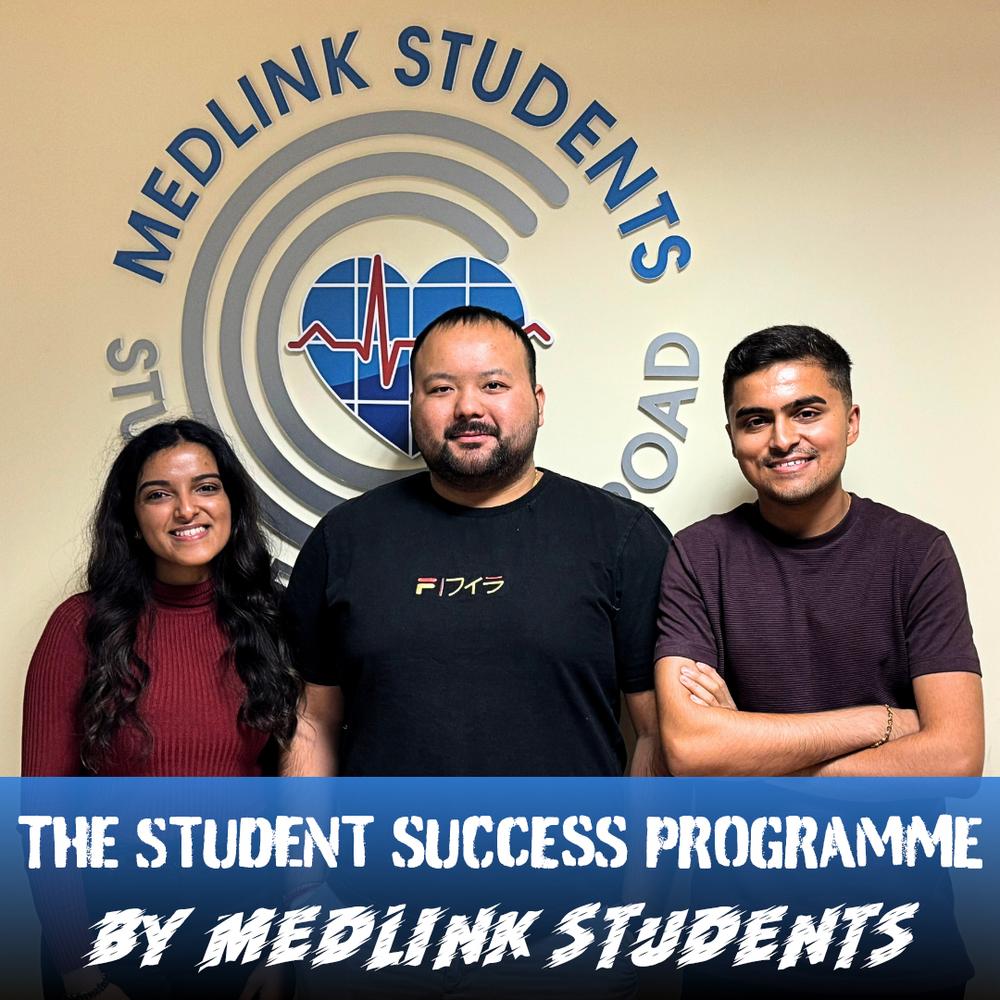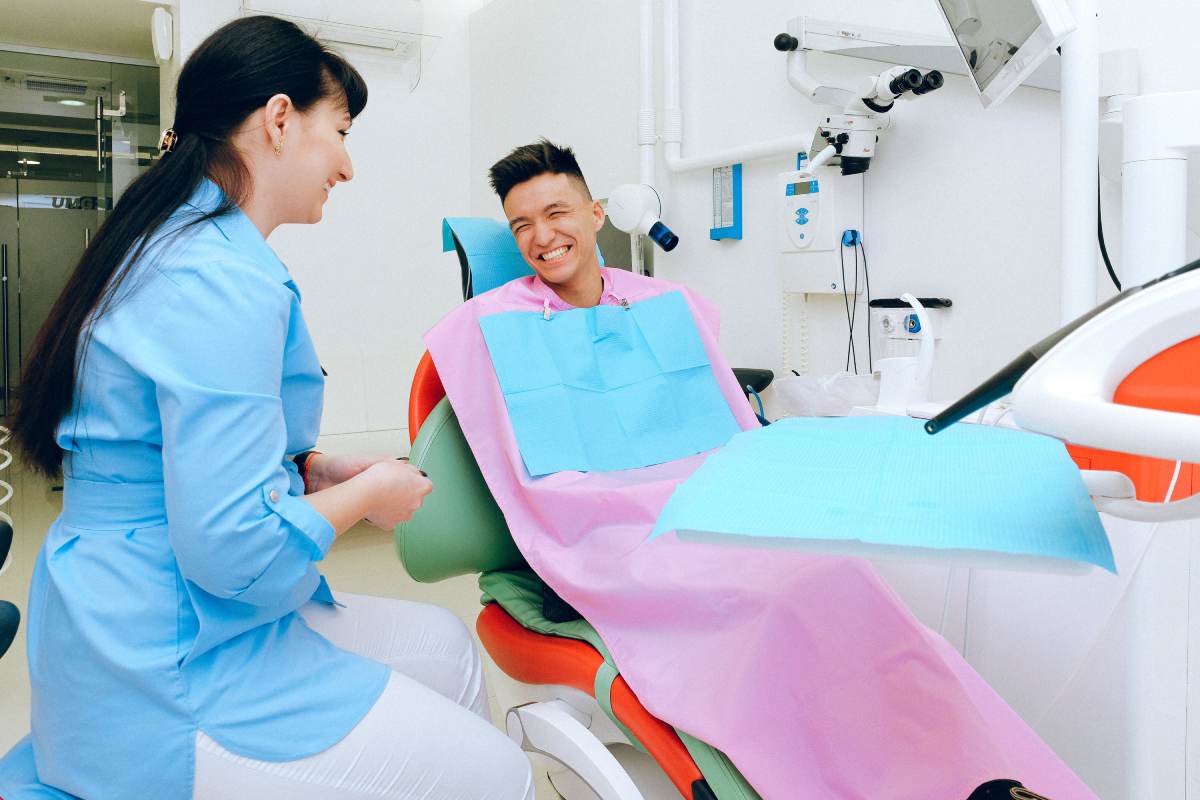Will Studying Medicine Abroad Put Me At a Disadvantage to UK/US Graduates?


Before deciding on a country to study medicine in, some students have asked us, “Will studying medicine abroad put me at a disadvantage compared to UK/US graduates”?
This question is common, especially among parents, but the good news is that the answer is pretty straightforward.
In this blog, we’ll explore the realities of studying medicine abroad and how it compares to UK and US medical education. We’ll look at the challenges, the opportunities, and how your degree will measure up as an International Medical Graduate (IMG).
The key takeaways of this blog are:
- The different medical systems in the world offer unique advantages. Research and choose where you want to study based on your career goals.
- There is a growing trend in the UK and the US of significant increases in IMGs entering the workforce.
- Licensing exams like PLAB and USMLE are an essential part of becoming a licensed professional in the UK and US, and many international medical graduates pass them each year.
- Clinical rotations abroad can be supplemented with electives or observerships in your target country to strengthen your experience and prepare you for your future career.
- Some bias and misconceptions exist, but can be easily overcome by demonstrating skills and professionalism.
- IMGS have excellent career opportunities and specialisation pathways as long as they plan ahead and stay committed.
Table of Contents
- 1 Understanding the Differences Between Medical Education Systems Across the World
- 2 Licensing and Certification as an International Medical Graduate
- 3 The Gateway for Medical Schools Success for International Medical Graduates
- 4 Clearing Up Misconceptions About International Medical Graduates
- 5 Why This Matters to You
- 6 Frequently Asked Questions (FAQs)
- 6.1 1. Will studying medicine abroad put me at a disadvantage compared to UK/US graduates?
- 6.2 2. What are the main challenges for international medical graduates in the UK and US?
- 6.3 3. How do clinical rotations abroad compare to those in the UK or the US?
- 6.4 4. Are there scholarships available for international students studying medicine abroad?
- 6.5 5. How can I enhance my clinical experience while studying abroad?
- 6.6 6. What is the Student Success Programme (SSP) by Medlink Students?
- 6.7 7. How do the UK and US, European and Caribbean medical training systems differ?
- 6.8 8. Can I practice medicine in the US after studying abroad?
- 6.9 9. Are there biases against international medical graduates in the UK?
- 6.10 10. What are the benefits of studying medicine abroad?
Understanding the Differences Between Medical Education Systems Across the World
Medical education systems in Europe, the Caribbean, the UK, and the US each have their unique structures, strengths, and challenges.
For instance, European medical schools follow a 6-year programme directly after secondary school, which integrates pre-clinical and clinical training throughout. Medical training in the UK is similar, but medical degrees usually take 5 years, though some extend to 6 years with an added foundation year or optional research-focused intercalated degree.
Meanwhile, in the US, students complete a 4-year undergraduate degree before entering a 4-year medical school, which means medical training begins later but is often more research-focused in the pre-clinical years. Caribbean medical schools also offer a 4-year graduate entry programme similar to the US model, with the first 2 years focused on basic sciences and the last 2 dedicated to clinical rotations.
A notable difference - the healthcare system itself
UK medical schools are closely tied to the National Health Service (NHS), which influences how clinical skills and patient care are taught. US schools often expose students to a mix of private and public healthcare systems. In contrast, European and Caribbean schools are more flexible and often offer a diverse range of clinical training options.
This means that if you’re aiming to become a doctor in the US by studying medicine abroad, you can choose a medical school that is tailored towards helping you achieve that goal. Similarly, many European universities have medicine programmes that are approved and recognised by the GMC, granting eligibility to register to become a doctor in the UK.
These differences don’t mean that 1 system is better than another; rather, they offer a different path to achieving the same goal.
What do the stats say?
In fact, the UK is becoming increasingly more reliant on international medical graduates (IMGs). In 2022 alone, more than half (52%) of the doctors who joined the workforce were IMGs, and that trend is only increasing. The US displays a similar pattern, where in 2024, 25.1% of all graduates who matched into residency programmes are IMGs (the highest proportion recorded to date).
So, to come back to the question - no, IMGs are not disadvantaged in any way compared to UK/US graduates. Rather, there’s an increasing tendency for Western Students to choose to study medicine abroad and go back home for their licensing and career growth.
Licensing and Certification as an International Medical Graduate


1 of the biggest concerns for students who study medicine abroad is dealing with the licensing process to practise in the UK or the US.
Medical Licensing in the UK for International Medical Graduates
For those aiming to work in the UK, the Professional and Linguistic Assessments Board (PLAB) exam is the standard route to registration with the GMC. Although there were plans for the PLAB to be merged into the United Kingdom Medical Licensing Assessment (UKMLA), this has been postponed for now.
Both PLAB and UKMLA test a graduate’s clinical knowledge and skills to ensure they meet UK standards for medical practice. Although many international graduates worry about passing PLAB, thousands do so successfully each year by using targeted study materials and mock exams.
Medical Licensing in the US for International Medical Graduates
If you want to become a doctor in the US, passing the United States Medical Licensing Examination (USMLE) is a mandatory part of earning your licensure.
This 3-step exam assesses your ability to apply medical knowledge to US standards in clinical scenarios typical of the US healthcare system. While the USMLE is known to be challenging, there are many European and Caribbean medical schools that offer USMLE prep courses and even clinical training in the US.
💡 Some medical schools abroad are directly recognised by the major governing medical bodies, which can really help with the licensing process.
To help you sift through your options, Medlink Students offers comprehensive support throughout your medical education. This includes guidance in choosing the right university, preparing for licensing exams, and even arranging clinical placements to give you the best chance of success.
We do this through our proven step-by-step roadmap designed by doctors for future doctors:
The Gateway for Medical Schools Success for International Medical Graduates


Medlink Students has established the Student Success Programme (SSP), a mentoring service designed to help you succeed throughout your medical education. The SSP provides personalised support, expert tutoring, and practical guidance on passing licensing exams, ensuring you’re fully prepared to achieve your career goals with confidence and minimal stress.
To find out if you qualify for the Student Success Programme, sign up for a free consultation with 1 of our British Council-certified academic advisors.
Clearing Up Misconceptions About International Medical Graduates
It’s natural for new graduates, including IMGs, to face initial scepticism, but this bias is not a fixed barrier.
IMGs can easily overcome this by demonstrating their competence, professionalism, and commitment to the medical field. Then, by building your network within the medical community and engaging in continuous professional development, you can prove that you’ve got the skills for the job and create a name for yourself.
Remember, medicine is an evidence-based profession. Strong exam results, clinical references, and proven skills carry much more weight than the location of your medical school.
Now, let’s look into some common misconceptions about studying medicine abroad:
Studying Abroad Is Always More Expensive or Financially Risky
Some people think that studying medicine overseas is too expensive or risky from a financial standpoint. While costs vary widely depending on the country and university, many overseas medical schools are significantly more affordable compared to studying medicine in the UK or the US.
In fact, we’ve done the research for you. For an in-depth comparison, feel free to read our blog: Comparing The Costs of Studying Medicine: UK, USA, Europe, and the Caribbean.
Additionally, there are plenty of scholarship opportunities, which can significantly decrease the overall cost of studying medicine.
Entry Requirements for Medical Schools Abroad Are Lower or Less Rigorous
A common assumption is that, in comparison to US or UK medical schools, admission requirements for international medical schools are simpler or less demanding.
1 of the strongest points of studying medicine abroad is that there is a lot of choice when it comes to picking out a medical school. Some medical universities have accessible entry requirements, while others are very strict and even more demanding than medical schools in the UK and the US.
Once again we’ve got you covered with our blog, UK vs Europe: Comparing Medical School Requirements and Education.
Career Growth and Specialisation Are Difficult for International Medical Graduates
Some worry that choosing to study medicine abroad might limit their chances of entering competitive specialities or advancing professionally. That’s simply untrue, as postgraduate programmes in the UK and the US have always accepted and continue to welcome international graduates.
While the competition is pretty high, well-prepared candidates who demonstrate commitment and adaptability will always come out on top, regardless of where they’ve graduated. With careful planning, studying medicine abroad can be a stepping stone to a successful, rewarding career across a broad range of specialities.Medlink Students offers support in choosing a medical speciality, so you can create an achievable plan to work on from early on. For example, if your goal is to get into 1 of the most popular specialisations - dermatology, we’ve created a step-by-step guide on becoming a dermatologist in Europe, the UK, the US, and the Caribbean.
Why This Matters to You
Choosing where to study medicine is going to shape your entire career. If you don’t fully understand what you’re getting into and the differences in medical education systems, you risk facing significant setbacks later on.
Without proper preparation, you might struggle to pass crucial licensing exams like PLAB or USMLE, which will delay your ability to become a doctor. Limited or unrecognised clinical experience could narrow your job prospects or make it harder to secure competitive specialisations. Worse still, choosing a medical school that isn’t accredited and recognised can hold you back from the career you worked so hard for.
The good news is that you can overcome all this very easily. All it takes is proper planning with some guidance and support.
Medlink Students is here to help you every step of the way, so you can avoid these common pitfalls and use your international medical degree to kickstart a successful career. Don’t let uncertainty or lack of information limit your potential. Take control of your future with the right tools for success, and turn your dreams of a medical career into reality.
Frequently Asked Questions (FAQs)
1. Will studying medicine abroad put me at a disadvantage compared to UK/US graduates?
Not at all. While there are differences in training systems, many international medical graduates (IMGs) successfully pursue careers in the UK and the US. The key is thorough preparation, passing your licensing exams (like PLAB or USMLE), gaining relevant clinical experience, and understanding the healthcare systems where you intend to practice.
2. What are the main challenges for international medical graduates in the UK and US?
Although this applies to all graduates, not just IMGs, common challenges include passing licensing exams and adapting to the local healthcare systems and workplace cultures.
However, with proper planning, strong study habits and a supportive network, you can easily overcome these.
3. How do clinical rotations abroad compare to those in the UK or the US?
In the UK, clinical rotations are organised within the National Health Service, while in the US, training is carried out via a mix of private and public healthcare systems. In Europe and the Caribbean, clinical training is more varied and flexible, with many medical schools offering rotations based on where you’re planning to become a doctor.
Regardless of your location, as long as you’re studying at an accredited and internationally recognised medical school, you will have access to high-quality clinical training opportunities.
4. Are there scholarships available for international students studying medicine abroad?
Yes, many European and Caribbean medical schools offer scholarships to international students. You can check out our blog on the topic - Can You Really Get a Scholarship to Study Medicine Abroad? Here’s the Truth.
5. How can I enhance my clinical experience while studying abroad?
To strengthen your clinical portfolio, you can demonstrate initiative and commitment to your medical career by:
Participating in electives in the UK or the US
Engaging in research projects
Volunteering in clinical settings
Shadowing a doctor
Seeking mentorship from professionals in your future speciality
6. What is the Student Success Programme (SSP) by Medlink Students?
The SSP is a proven step-by-step roadmap designed by doctors to help future doctors achieve their dream of becoming a successful healthcare professional. It offers personalised support to help you choose the perfect medical school, while making sure that you’re on the right path to success from day 1.
7. How do the UK and US, European and Caribbean medical training systems differ?
The UK and Europe offer direct entry into medical school after secondary education, leading to a 5 or 6-year undergraduate medical degree, depending on the university. In contrast, studying medicine in the US and the Caribbean requires a 4-year undergraduate degree followed by 4 years of medical school.
8. Can I practice medicine in the US after studying abroad?
Yes. However, you will need to follow these steps, just like all other graduates: passing the USMLE exams, obtaining ECFMG certification, and securing a residency position.
9. Are there biases against international medical graduates in the UK?
Some IMGs report experiencing biases within the NHS due to cultural differences, varying communication styles, and unconscious bias. However, IMGs can easily overcome this by proving their professionalism and showing their commitment to the medical field.
10. What are the benefits of studying medicine abroad?
Studying medicine abroad offers:
Exposure to diverse medical practices and patient populations
Opportunities to learn in different healthcare systems
Internationally recognised degrees
Affordable tuition fees and living costs
The chance to develop cultural competence and adaptability
And much more.
Leave a Reply


About Medlink Students
Leading international recruitment company for medical students in Europe. British Council Certified Agents. 10+ years of experience and more than 10,000 students advised.








